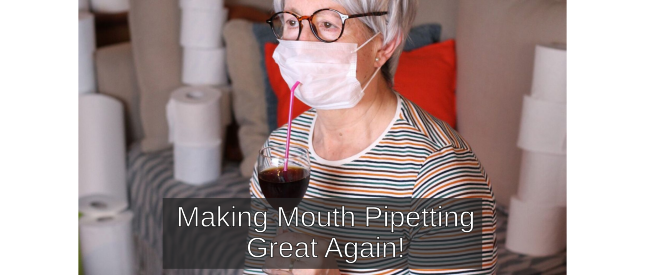“You know in April, supposedly, it dies with the hotter weather” – Donald J. Trump
In the final episode of our Contagious Ideas Arc, we discuss the impact of the ongoing global pandemic on paleolimnology, both short and long term.
It has been an unusual year for researchers and academia in general. In response to the rapid spread of COVID-19, many nations shut down large proportions of their economies to limit person-to-person contact. In Canada, the spring academic semester came to an abrupt end, field seasons were cancelled, and many academics have had to rapidly become familiar with video conferencing software. Over the past few months, restrictions have gradually relaxed; however, the threat of a second wave looms large, and there are no expectations of a return to ‘normalcy’ anytime soon.
As our recollection of the ‘before times’ grows hazy, we wonder whether the past six months will have a noticeable impact on the paleo record. The massive reduction in air travel alone must have affected global atmospheric CO2 concentrations, even if only as a minor blip in the rising trend. Will this be reflected in lake sediments? Has a new marker been incorporated into the varves deposited in 2020 comparable to the 137Cs peak associated with Chernobyl? Only time will tell.
The consensus among our own networks and listenership is that fieldwork this summer has been “completely cancelled”. A summer 2020 gap in the data record for information dependent on sampling by humans (as opposed to instrumentation), will also affect government-run long-term monitoring records such as the Ontario Ministry of the Environment’s Lake Partner Program. Again, it will take some time to fully understand how much information has not been collected.
There are huge implications associated with the pandemic for the finances, tenure and teaching responsibilities of professors; however, we believe these impacts pale compared to those faced by students.
Incoming first year students have arrived at universities operating at a fraction of their normal in-person capacity, and they need to quickly adapt to an undergraduate experience focused on remote learning. A higher than usual proportion of fall applicants have elected to take a gap year, will this create a new double cohort, with cascading effects on competitiveness for acceptance, grants and scholarships? Returning students have had their thesis plans upended by cancelled field seasons, training has ground to a halt. Many international students are now in limbo, unable to enter their country of study. Graduating students must conduct their defences over Zoom, and move on without any sense of closure, as celebrations are postponed indefinitely.
We finish the show looking for silver linings, asking whether there are some unexpected benefits related to so many academics forced to stay home for so long? The necessary switch to online/remote teaching may lead to some teaching renewal that might otherwise not have occurred. Time at home has allowed many to tackle their project backlog, and 2021 may be a banner year for many publication records. Most importantly, we have spent a lot more time with our families, producing some fun projects in attempts to keep our kids entertained in the absence of school/friends/grandparents etc.
So far, we have both been lucky and not endured any personal tragedy related to COVID-19. Our thoughts and sympathy go out to the millions who have.

